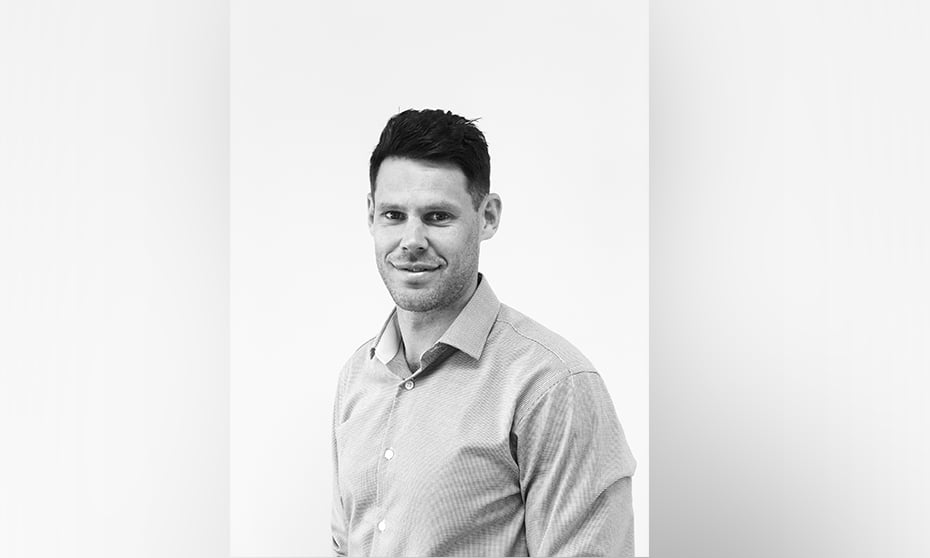
HRD talks to former AFL star Sam Gibson about employers taking on somebody who’s made a career change

Sam Gibson’s path to the AFL was traditionally different to most of the men he played with.
After graduating from Melbourne University, he landed his first job in engineering at McConnell Dowell and not long after was drafted to play AFL for North Melbourne.
While engineering has always been something he’s interested in, sport had played a huge role in his upbringing.
“Having grown up in Melbourne, AFL is ingrained in my culture and so pursuing this as a career was an ultimate dream,” he told HRD.
When he began with North Melbourne, he still pursued an engineering career and continued to work one day a week at McConnell Dowell to further himself in the industry.
“During my time as a professional sportsman, I always recognised the need to future proof my career and therefore engaged in various internships and work experience to heighten my understanding of an engineering career,” he said.
“Even though I had a slower start to my engineering career, I believe I am resuming it as a far more well-rounded person with a diverse skill set.”
Gibson said it was a challenging experience to move from the AFL back to Engineering.
“I’m 33 years old now, so I’m behind others who haven’t pursued a different career path and initially it did feel like I was playing catch up,” he said.
“However, I was willing to learn and had the confidence in my own abilities. Unfortunately, this self belief is something that not all Aussies have.”
According to Dyson’s survey for this year’s James Dyson Award, a third (33%) of Aussies said they lack confidence in their own abilities to bring problem-solving ideas to life and that they have a fear of not succeeding (26%).
“Even though something seems like a challenge and it may be easy to give-up, giving yourself the confidence can sometimes be all you need to succeed,” he said.
“Sports is a competitive industry, and unfortunately, anything can happen suddenly.
Gibson said that one of the big questions that athletes face towards the end of their career is ‘what will I do next?’
“I do think it’s important to have back-up career options because this can help eliminate a huge amount of stress,” he added.
“The great thing about the AFL is that it does have procedures in place to help you limit your anxieties, providing support when you are looking into other ventures.”
You pour a huge amount of focus into being an AFL footballer, and sometimes that leaves little time to explore career options.
“I believe most players don’t fully grasp the valuable skills they’ve learnt whilst in the AFL system that are also transferable to a number of other professions such as leadership skills, management and responsibility, commitment, the ability to handle pressure and the list goes on.”
So what would be Gibson’s advice to employers in terms of taking on people who are making very different career decisions?
“I feel the best advice would be to give the candidate a chance. No matter what profession they are coming from there will also be transferable skills to take into their new career,” he said.
“Changing careers is not an easy feat, it takes confidence and determination and I feel these are great qualities to have in an employee.
Throughout Gibson’s career in the AFL, he was exposed to a variety of different people with different personalities.
Understanding human behaviour is an important skill that he took away from the AFL and still applies to his day-to-day role at FDC_Group.
“As an engineer, you’re always dealing with new companies or different stakeholders and you can’t always apply a ‘one size fits all’ way of working.”
For Gibson, the best piece of advice he can give to people considering a career change is the ability to put your ego aside, understand that you’re there to learn and it’s okay to start from scratch.
“Everyone has something of value, so allow yourself to listen and absorb, as this will help you adapt and succeed in your new industry,” he said.
“It’s extremely important to have confidence in yourself, recognise your personal value and what skills you can transfer across, even when making the jump from the AFL to engineering.”
Indeed, Gibson has learnt so many valuable life lessons that he can now apply to his career as an engineer.
“This journey has opened so many new doors for me,” he said. “I’m so thankful I began my AFL career the way I did.”
“This year, I’ve had the honour of working alongside Dyson Australia for the James Dyson Award, an international design award that celebrates, encourages and inspires the next generation of design engineers to submit their world changing ideas.
“It’s an initiative I wish I knew more about when I was studying and will help you establish yourself and further your career in the industry - highly recommend students to enter.”